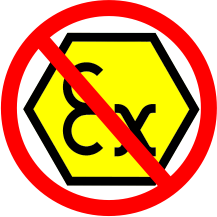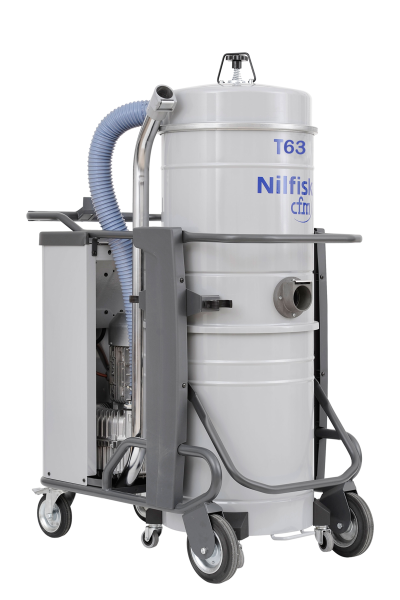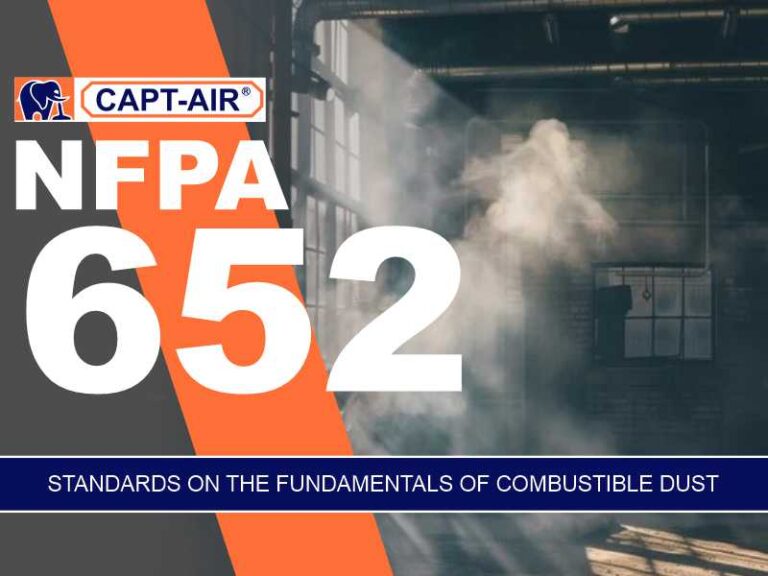Explosion-Proof Vacuums – a Buyer’s Guide

breadcrumb >> list
Comprehensive Guide to Explosion-Proof Industrial Vacuums for Professionals
In the world of industrial safety, managing explosive risks in environments with flammable dusts and gases is paramount. Explosion-proof industrial vacuums are essential tools designed to prevent the ignition of hazardous substances that can lead to catastrophic incidents. This guide delves into the usage, specialized construction, and standards of explosion-proof vacuums, equipping professional buyers and engineers with the knowledge to make informed purchasing decisions.

The Importance of Explosion-Proof Vacuums in Industry
Key Applications
Explosion-proof vacuums are critical in environments where even a small spark could ignite explosive dust or fumes. Industries such as pharmaceuticals, food processing, petrochemicals, and woodworking rely heavily on these vacuums to safely manage and clean hazardous waste and residues.
These vacuums are specifically designed to handle:
- Combustible Dusts: Fine particles from wood, grain, chemicals, and metals that can combust rapidly when airborne.
- Flammable Liquids and Sludges: Residues from petrochemical processes.
- Hazardous Gases: Environments where natural gas, methane, or other volatile organic compounds are present.
Using an explosion-proof vacuum helps in maintaining rigorous safety standards, ensuring that operations involving hazardous materials are conducted without risking the health and safety of personnel and facilities.

Comparison with Other Industrial Vacuums
While explosion-proof vacuums are specialized for hazardous environments, comparing them to standard industrial vacuums can highlight their unique benefits and limitations. Standard industrial vacuums are generally less expensive and are designed for a variety of applications, including wet and dry conditions, but lack the safety features critical for explosive or flammable environments. Explosion-proof vacuums, on the other hand, are built with materials and technologies that prevent ignition risks, such as static discharge or sparks from electrical components. They also feature robust construction that can withstand harsh, corrosive environments which standard vacuums may not tolerate. However, this specialized equipment comes with a higher price tag and often requires more rigorous maintenance routines. Standard vacuums provide sufficient functionality for industries that handle non-explosive materials at a lower cost. However, for facilities dealing with combustible dusts or volatile chemicals, the investment in explosion-proof technology is essential for compliance with safety standards and protection of personnel and property.
Construction Features of Explosion-Proof Vacuums: A Closer Look at Nilfisk

Explosion-proof vacuums differ significantly in their construction compared to standard vacuums. Nilfisk, a leader in the industry, integrates several advanced features to ensure safety and durability.
Materials and Design Innovations
Nilfisk vacuums are crafted with high-grade materials that prevent sparks and withstand harsh conditions:
- Stainless Steel Bodies: These prevent corrosion and resist sparks better than other materials.
- Antistatic Components: All parts, including hoses and filters, are designed to prevent the build-up of static electricity, a common source of ignition.
Advanced Safety Features
Nilfisk’s explosion-proof vacuums incorporate features that exceed typical safety standards:
- Bypass Motors: In explosion-proof industrial vacuum cleaners, bypass motors are designed to enhance safety by separating the motor’s cooling air from the dust and debris being collected. This design prevents the cooling air from igniting any combustible materials in the debris, ensuring safer operation in environments with potentially explosive dust.
- Sealed Electrical Parts: Switches and wiring are sealed off to prevent exposure to flammable dusts or gases.
- Conductive Accessories: To prevent static buildup, accessories are designed to be conductive, thus safely dissipating any static charges.
Standards and Certifications: Ensuring Compliance and Safety
Selecting the right explosion-proof vacuum also involves understanding various safety standards and certifications that govern their design and functionality.
When selecting an explosion-proof vacuum for use in North America, understanding the specific safety standards and certifications that govern their design and functionality is crucial. Nilfisk vacuums meet rigorous North American safety standards, ensuring they are suitable for environments with explosive dusts and gases.

Standards and Certifications: Ensuring Compliance and Safety in North America
Compliance with North American Standards
Nilfisk vacuums adhere to strict standards set by notable safety organizations:
- National Fire Protection Association (NFPA): This standard provides guidelines to ensure that vacuum cleaners are safe for use in environments where combustible dusts are present. Compliance ensures that vacuums can safely contain and control flammable particulates without risking ignition.
- Occupational Safety and Health Administration (OSHA): OSHA’s regulations dictate the safe operation of vacuum systems in hazardous locations. Nilfisk vacuums designed to comply with OSHA standards help prevent workplace injuries related to explosive atmospheres.
Key Certifications to Look For
For facilities in North America, several key certifications indicate a vacuum’s suitability for explosive environments:
- Class I, II, and III, Division 1 and 2 Certifications: These classifications are essential for equipment used in areas where flammable gases, vapours, or dust are present. They ensure that the vacuum can operate safely in various hazardous environments.
- UL (Underwriters Laboratories) Certification: Look for UL certifications that indicate the vacuum has been tested and meets specific safety standards. This certification is a testament to the vacuum’s ability to operate safely under the conditions for which it was designed.
These standards and certifications are indispensable for ensuring that explosion-proof vacuums perform safely and effectively, providing necessary protection in high-risk industrial settings across North America. By choosing equipment that meets these rigorous requirements, professionals can significantly mitigate the risks associated with handling explosive materials.
Purchasing Considerations: What to Look For
When investing in an explosion-proof vacuum, several factors need to be considered to match the specific needs of your operation.
Performance and Usability
- Suction Power and Capacity: Choose a vacuum that can handle the volume and type of material you need to collect.
- Filter Efficiency: High-efficiency particulate air (HEPA) filters may be necessary depending on the fineness of the dust.
- Ease of Use: Features like easy-to-clean filters and simple maintenance access can significantly affect usability.
Warranty and Support
When investing in an explosion-proof vacuum, the warranty and support offered by the manufacturer and local distributors are critical considerations. Both Nilfisk and Capt-Air in Montreal provide robust support systems to ensure their equipment meets the long-term needs of their customers.
Nilfisk's Manufacturer Warranty
Nilfisk backs their explosion-proof vacuums with a comprehensive manufacturer’s warranty that covers defects in materials and workmanship. This warranty ensures that any issues encountered with the vacuum during the warranty period can be resolved without additional cost to the customer. Furthermore, Nilfisk provides professional customer support, including access to technical advice and rapid response for parts and service, ensuring minimal downtime for your operations.
Local Support Through Capt-Air
Capt-Air offers support for Nilfisk explosion-proof vacuums Throughout Montreal and surrounding areas. As an authorized distributor, Capt-Air not only sells the equipment but also provides after-sales support including maintenance and repairs. Their on-the-ground presence allows for faster service compared to dealing directly with manufacturers who may not have local facilities. Capt-Air’s trained technicians ensure that any servicing is done promptly and in accordance with Nilfisk’s standards, providing peace of mind and extended reliability for your vacuum systems.
Choosing a vacuum from a provider that offers extensive warranty terms and accessible local support, like Nilfisk and Capt-Air in Montreal, can significantly enhance the usability and longevity of your equipment. Their combined warranties and services protect your investment and ensure your operations continue to run smoothly, even in demanding industrial environments.
Conclusions
Choosing the right explosion-proof vacuum is crucial for maintaining safety standards in industries dealing with hazardous materials. By understanding the specific construction features of brands like Nilfisk and adhering to international safety standards, professionals can ensure that their operations are equipped to handle hazardous substances safely and effectively. This guide serves as a comprehensive resource for making an informed choice, emphasizing the importance of safety, compliance, and operational efficiency in selecting the ideal explosion-proof vacuum for industrial needs.